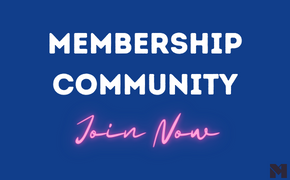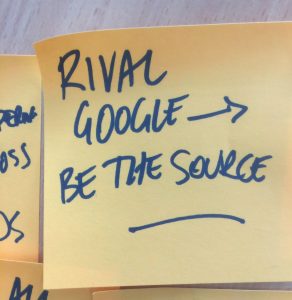This week I feel I’ve almost exclusively been coaching on career opportunities – some due to job seeking, some due to restructures, some coming completely from left field. Must something in the water at this time of year; as people start looking ahead to a fresh new year.
So I thought I would share the advice that I’ve been giving – in case many of you are having the same decisions presented to you!
Career Decisions – Scale or Scope?
Do you scale your existing scope – same core job, same functional remit, but a bigger company or more global reach? eg moving from head of technology to global head of technology.
Do you extend the scope of your current role – a broader functional remit, more ‘territory’ but perhaps a smaller company? eg moving from head of technology to head of operations.
IDEO’s former Chief Executive Tim Brown says think of your career like a T-shape.
The vertical bar is scale – delivering similar functions, objectives and deliverables but on an increased scale. This is super-appealing: scaling is famously efficient and feels safe – you know the job already, so you can handle much more (more volume, more headcount, more countries, more budget) without much more effort.
The horizontal bar is scope – expanding (often organically) from your original vertical into adjacent functions. It’s how Accountants move through finance, strategy and operations to become COOs, or how a Payroll manager can become a head of Shared Services providing technology, HR and procurement services. Or how a Customer Success manager becomes a Head of Product (and vice versa).
The former is often the choice of B-Suite leaders – and strategically, it’s the wrong choice.
Doing more of what you have always done will lock you into what you have always done, and once you are the global head of it, where else is there to go? You can easily become pigeonholed by the time to achieve this scale, you may find you have been pigeonholed into that vertical forever. And that realisation is often accompanied by the sound of a door shutting – the door to the C-Suite.
Taking on new scope is the strategic choice, opening up your options for the next career move. If you’re the head of shared services – for example – you move into customer, technology, procurement, people or finance roles. There’s more choice from a broader base.
This is the basic decision facing many B-Suite executives across the world right now as organisations get their pre-Xmas offers in place, or CEO’s start to imagine the new year with a new structure to solve old problems.
What an opportunity-rich environment that presents – and how many missed opportunities am I seeing right now!?
As a former executive headhunter AND a former head of talent I reckon I have chalked up a few hard-learned lessons so here goes – my top tips for working out your ‘new year new career conundrum’:
Conviction: decide on scale or scope and be bold about your choice – regardless of the direction you choose, your conviction will make you the more compelling candidate.
Curiosity: engage, enquire and consult – your ability to ask questions, rather than your expert answers, are the key to a rich dialogue that illustrates what you are like to work with – and that’s what gets people excited about you; not your rehearsed STAR responses!
Positioning: be clear on why this is a strategic match; clear on both the value that you bring and the value the role needs to bring to you. Set an egalitarian tone from the outset, don’t wait to get the job to assert yourself.
Vision: get clear on your future vision and if it’s one that they want to, then you are in the right conversation. The impact that you both desire this role to have is the shared purpose that will see you through the inevitable changes in plan, direction, and role dimensions.
Money: of course, it matters. Feel free to work for free if it doesn’t. But no one wants you to negotiate your price before they are clear on your value – the steps before this will establish your value, which in turn pushes up your price. And getting paid the right amount doesn’t need to be about you, nor even about market rates. For you to build the leadership team that you will need for success, you must pay them competitively. If your salary is lowballed, you’ll only afford a cheap leadership team and your shared vision will fail.
Boundaries: get them in early. Flexibility, professional development, religious observances? Get your cards on the table – these are part of the deal – because you and your boss will resent negotiating surprise items after you start.
But above all, be deliberate. Only deliberate influence gets results.

Rebecca is Australia’s pre-eminent advocate for B-suite leadership – the expert in developing hi-impact B-Suite leadership at both a team and individual level.
Speak to Rebecca about:
- Individual and group coaching
- Team effectiveness and training
- People & Culture Advisory
You can reach her on [email protected]














